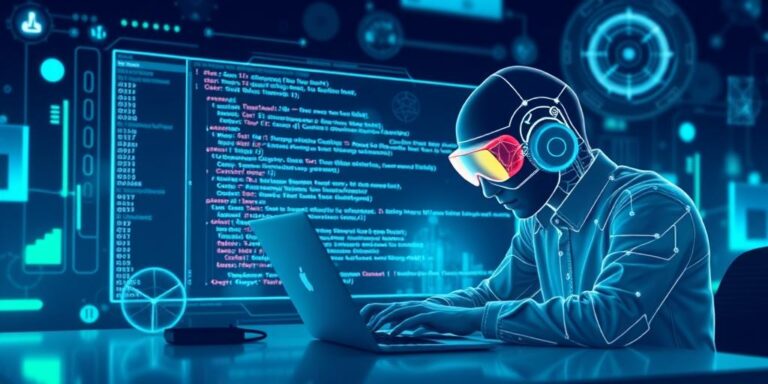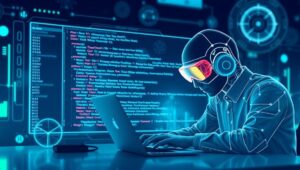AI-Powered Code Generation: The Co-Pilot Evolves (2025 and Beyond)
Artificial intelligence is rapidly transforming software development, and AI-powered code generation tools are at the forefront of this revolution. This article delves into the evolution of AI co-pilots, examining their current capabilities and future potential beyond 2025.
The Current State of AI Co-Pilots
Today’s AI co-pilots, such as GitHub Copilot and Tabnine, assist developers by:
- Suggesting Code Completions: Predicting and suggesting code snippets based on context.
- Generating Boilerplate Code: Automating the creation of repetitive code structures.
- Providing Real-Time Suggestions: Offering immediate feedback and suggestions as developers type.
- Translating Natural Language to Code: Converting simple English instructions into functional code.
These tools leverage machine learning models trained on vast code repositories, enabling them to understand patterns and provide relevant suggestions. However, they are not without limitations. Current co-pilots sometimes produce incorrect or inefficient code, and their ability to handle complex tasks remains constrained.
The Evolution Beyond 2025
Looking ahead, AI co-pilots are expected to become more sophisticated and integrated into the development workflow. Here are some potential advancements:
- Improved Accuracy and Reliability: Enhanced machine learning models will reduce errors and improve the quality of generated code.
- Context-Awareness: Co-pilots will have a deeper understanding of the project context, allowing for more relevant and accurate suggestions.
- Automated Debugging: AI will assist in identifying and fixing bugs, streamlining the debugging process.
- Code Optimization: Co-pilots will optimize code for performance, security, and maintainability.
- Seamless Integration: AI tools will integrate seamlessly with IDEs and other development platforms, providing a unified development experience.
- Support for Low-Code/No-Code Platforms: AI will help bridge the gap between traditional coding and low-code/no-code platforms, enabling citizen developers to participate in software creation.
Challenges and Considerations
Despite the potential benefits, several challenges and considerations must be addressed:
- Data Privacy and Security: Ensuring the privacy and security of code used to train AI models.
- Intellectual Property Rights: Clarifying the ownership of code generated by AI.
- Bias and Fairness: Mitigating biases in AI models to ensure fair and equitable outcomes.
- Ethical Considerations: Addressing the ethical implications of AI in software development, such as job displacement.
Conclusion
AI-powered code generation is poised to revolutionize the software development landscape. As AI co-pilots evolve beyond 2025, they will empower developers to write code more efficiently, accurately, and creatively. While challenges remain, the potential benefits of AI in software development are undeniable, paving the way for a future where AI and humans collaborate seamlessly to build innovative software solutions.




